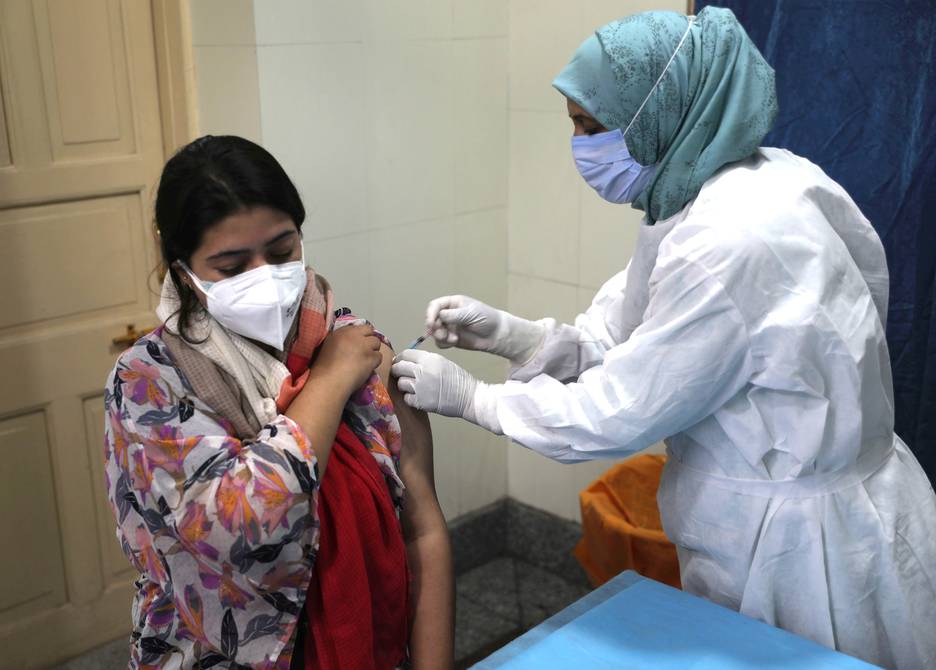In a report, they did not cite the culprits and say that February 2020 was a “lost month” as many countries could have taken measures to stop the infection.
Independent experts commissioned by the World Health Organization said the Covid-19 pandemic, which has killed more than 3.3 million people and devastated the global economy, “could have been prevented.”
In a report published on Wednesday, they denounced this true “21st century Chernobyl” and urgently called for widespread reforms of the warning and prevention systems.
“The situation in which we found ourselves today could have been avoided,” said Ellen Johnson Sirleaf, former President of Liberia.
Although it is severe, The report did not identify any culprits, unlike former US President Donald Trump, for whom China and the World Health Organization, which it considered subject to Beijing, were the only ones responsible for this. From the health and economic catastrophe that the world finds itself in.
On the contrary, Sirleaf stressed in a press conference that “this situation is due to the myriad of failures, loopholes and delays in preparing and responding” to the pandemic.
The report notes that “it is clear that the combination of poor strategic decisions, unwillingness to address inequality, and poorly coordinated system created a toxic mixture that allowed the epidemic to turn into a catastrophic human crisis.”
Delays are everywhere
Established by WHO Director-General Tedros Adhanom Ghebreyesus, according to a resolution adopted in May 2020 by WHO member states, the independent group, made up of 13 experts, has spent the past eight months examining the spread of the disease. The epidemic and the measures taken by the WHO and the countries to confront it.
Because from the start, the WHO was criticized for its response to the crisis, especially for the delay in recommending the use of a mask. Above all, the United States accused her of being very adaptive to China, where the Coronavirus appeared, and was slow to declare a global health emergency. For its part, the Chinese government has been accused of trying to camouflage the epidemic.
Of course, former New Zealand Prime Minister Helen Clark, who co-chairs the think tank, said, “We can say there were delays in China, but there were delays everywhere.”
The experts found that “a lot of time has passed” between the notification of an epidemic of pneumonia of unknown origin in the second half of December 2019 and the declaration by the World Health Organization, on January 30, of a public health emergency on an international scale, the highest level of alert.
According to experts, this statement could have been issued since the first meeting of the WHO Emergency Committee on January 22.
Clark admitted that even if the World Health Organization declared a health emergency a week ago, things would not change much due to “the inaction of many countries.”
Because it was until March 11th when Dr. Tedros described the situation as a pandemic, governments really recognized the danger.
February 2020, the ‘lost month’
In this regard, February 2020 was a “lost month” during which many countries could have taken steps to stop the spread of the virus.
In the end, the report concluded that “delays, indecision and denial” had allowed the epidemic and then the pandemic to spread.
The expert group recommends that governments and the international community adopt, without delay, a set of reforms aimed at changing the global pandemic preparedness, alert and response system.
To do this, the report proposes several ways, including the creation of a global council to combat health threats, as well as the creation of a new global monitoring system based on “full transparency”.
This system would give the World Health Organization the authority to immediately publish information on potentially epidemics and epidemics without requiring approval from countries.
The report also offers a series of immediately applicable recommendations to end the spread of the Coronavirus, calling in particular for rich countries to provide more than two billion doses of vaccines by mid-2022, at least a billion doses of them soon. September.
The committee also indicated that the world needs a strong financing mechanism that allows it to cope with future epidemics, and that in an emergency, it can spend between $ 50,000 and $ 100,000 million in the short term. EFE. (I)

“Music buff. Social media lover. Web specialist. Analyst. Organizer. Travel trailblazer.”

:quality(85)/cloudfront-us-east-1.images.arcpublishing.com/infobae/TEQF6EONZRFGLLLDIDD4L2O4EE.jpg)

:quality(75)/cloudfront-us-east-1.images.arcpublishing.com/elcomercio/XU32LRAEZFDDPNVHLFU3CKVBYY.jpg)



More Stories
Sheinbaum, Galvez, Mainz campaign wrap-up, news and more
Sheinbaum and Mainz’s CDMX campaign wraps up: Road Alternatives and Street Closures
Ortega attacks Humberto Ortega and declares him a “traitor to the country”